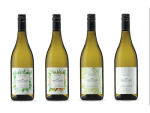The EU’s proposed restrictions on the use of geographical names in products could have implications for NZ exports to other regions – including China, a trade expert says.
“As part of negotiations for a free trade agreement (FTA) the European Union (EU) wants New Zealand to adopt strict regulations about the way certain geographical names are used in international trade,” explains executive director of the NZ International Business Forum, Stephen Jacobi to the Hawke’s Bay branch of the NZ Institute of International Affairs about the EU FTA and Brexit
He says while names of wine regions like Champagne are already restricted here, what the Europeans want is more about names associated primarily with dairy products and some meat products.
“This new strict regime would not only apply to products marketed in NZ, but also to our exports to other markets,” Jacobi says. “Think of feta cheese, mozzarella, parmesan, even cheddar.”
He adds that NZ’s view is that these names have become generic – rather than relating to a certain geographic region.
“Fonterra now supplies large amounts of mozzarella cheese to China: every second pizza in China is covered with it,” Jacobi points out. “That’s a lot of pizza and a lot of cheese!”
The EU has proposed restricting many geographical indications now being reviewed by our officials.
Jacobi says some of them may not pose difficulties, but others certainly will.
“However, there is a principle at stake here.”
He says another potentially complex issue with the EU FTA, relates to agriculture.
“Some parties in the EU’s agricultural producing nations are not enthusiastic about what might be included in an FTA with NZ.
“However, the FTA negotiations are an opportunity to promote and advance growing exports of high-quality food products including horticulture and wine.”
Jacobi says the export boost at the NZ end is likely to be huge.
“EU modelling suggests the deal could add as much as 0.5% to NZ’s GDP – a gain of up to $2 billion.”
He says Brexit also casts a big shadow over tariff rate quotas (TRQs) for our sheepmeat, beef and dairy products. The European Commission and the British Government have proposed that upon Brexit the TRQs will be split in half.
“That poses a lot of difficulties for NZ exporters who have, over a long time, developed markets in Britain and EU, which they manage according to market trends and consumption patterns and in the light of flows of British products to the EU and European products to Britain,” he explains.
“NZ exporters will lose a lot flexibility from the proposed splitting of the TRQs – even though their right to export within the quota limits and rules has been guaranteed since 1995.”
Jacobi says the European Commission and the British Government have in effect decided to proceed over the objections of NZ and other trading partners with similar arrangements.
“They risk having to face years of trade litigation in the WTO.”











